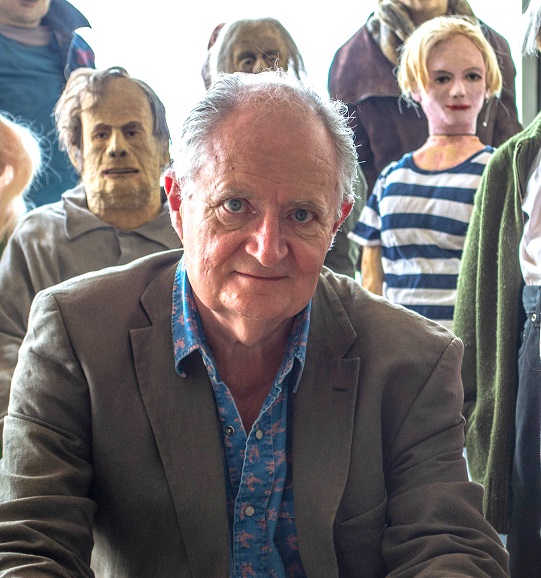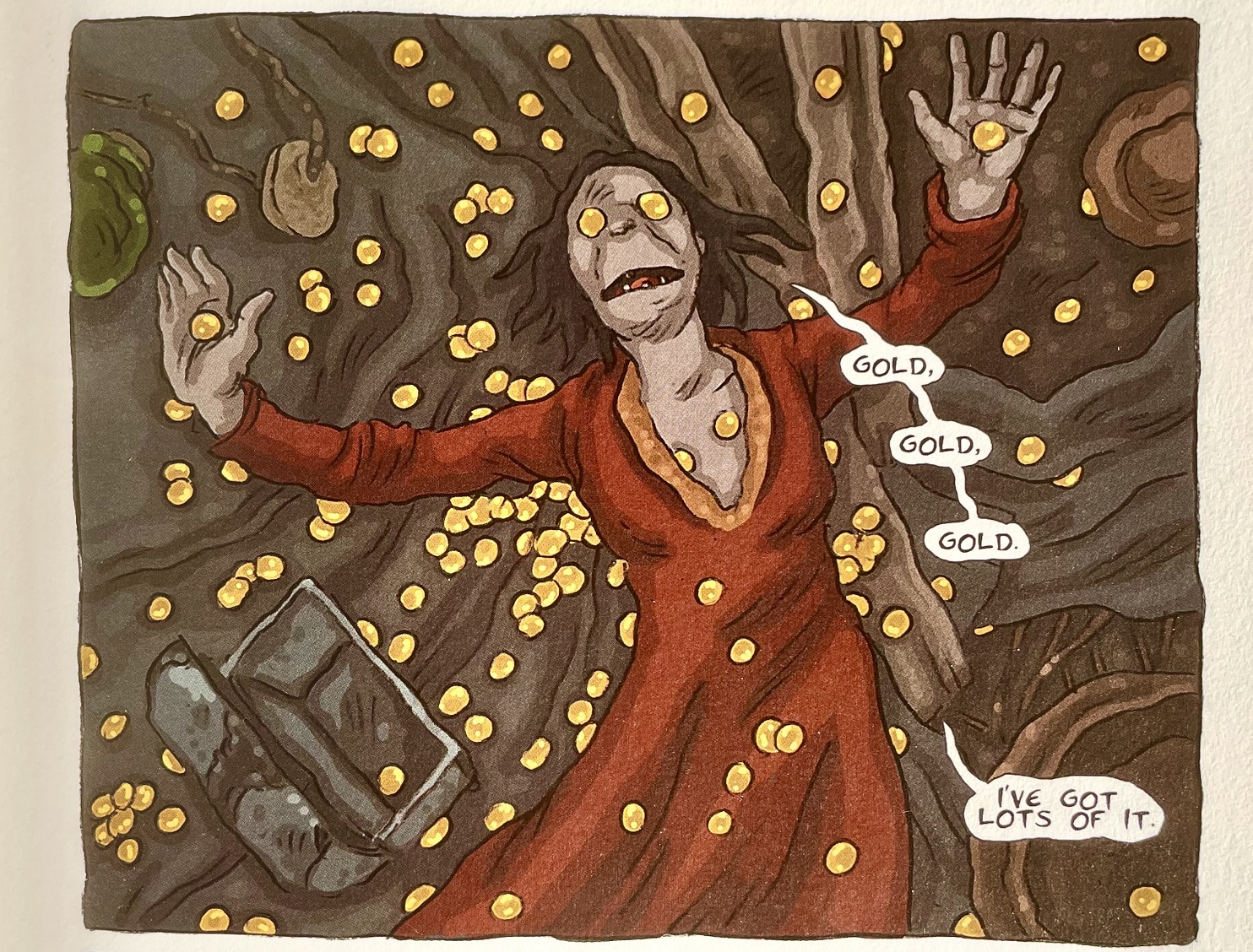She has perplexed generations: Dulle Griet, or Mad Meg, Flemish master Pieter Bruegel the Elder’s 16th century painting of the weird witch, wraith or virago seemingly heading for battle. And she inspired Oscar-winning actor Jim Broadbent to write Dull Margaret, a graphic novel imagining her life.
“I love the Dulle Griet painting,” Broadbent says. “It’s the spirit of her striding across the countryside. She’s a heroic figure who is plain and ugly, and that always appeals. There was no beautification: she just like looked like a real woman.”
He originally wanted to make a short film of Dull Margaret and wrote a screenplay with himself in the title role. “I've played many female characters in sort of comedic way, like Marie Antoinette and the Virgin Mary,” he says. “In my script, I wrote, ‘The part of Margaret will be played by the author, which is part of her tragedy: that she looks like the author.’”
When he failed to secure money for a movie, he landed on the idea of a graphic novel, asking Welsh cartoonist Dix to illustrate it. In Broadbent’s imagining, she is a potato-faced waif, who lives in a hovel on marshes by the sea. The story is a fable-like struggle to regain control despite a catalogue of misfortunes and humiliations, some self-inflicted.
Her bleak world evokes the surreal chaos of the Bruegel painting, with added grotesque elements, like the concoction she cooks in a cauldron – akin to a witch’s brew – that contains a dead dog’s head and the hand she chops off a hanged man.
Broadbent does not elaborate on Margaret's life before the story starts or afterwards. “She emerges from beneath the waves at the beginning and that’s where she goes back to. That's the thing about fairy stories: you don't really need backstories.”
Dark Ages fairy story
Broadbent is chatting in his London home, but he grew up in Lincolnshire, in northern England, which he tries to show in the book. “I was thinking of it as sort of Dark Ages fairy story, a non-specific time, but a northern Europe spirit rather than Britain,” he says. “Lincolnshire has a lot of flat, marshy wetland, which is featureless and rather exciting, but very, very plain. I always loved those marshes. And Norfolk, where I spent a lot of childhood holidays in the mud flats. I like the mud.”
He started thinking of the story 20 years ago. “I like the name Dulle Griet: I like making it dull, with the English translation, which relates a bit to plain Margaret. It all came together in a fairly ramshackle way.”
Broadbent says it has a Hobbesian view of the human condition as solitary, poor, nasty, brutish, and short. “There's no escaping the life is brutish and short and ends miserably,” he says. “There is also humour and fun and delights on the way and some hope in there as well. But it’s dark humour.”
He’s now rewriting the script to make it feature movie length and has discussed potential animation. “So far, it’s been deemed too expensive and too difficult. It’s not easy to classify as a particular genre, and animations need to attract audiences. If it does get into film state, I might give it a happy ending.”
While Broadbent is obsessed with Mad Meg, he has never been face-to-face with the painting, which is currently hanging at the Museum Mayer van den Bergh in Antwerp. Indeed, his only time in Belgium was in 1958 to see the World Expo. “I was taken out of school when I was eight or nine. I have strong memories of the Atomium,” he says.

Jim Broadbent
He won his Oscar for playing writer John Bayley in Iris, and recently starred in the crime caper The Duke, the true story of taxi driver Kempton Bunton, who reputedly stole Goya's portrait of the Duke of Wellington from the National Gallery in 1961. Other roles include potions master Horace Slughorn in the Harry Potter movies, Bridget Jones’s father in the three movies, Denis Thatcher in The Iron Lady, and an antique shop owner in Paddington.
“I try to avoid being typecast. People think I always play genial, pleasant, cuddly dads or whatever it is, but there are quite a lot of nasties in there as well. Good scripts are really what appeals to me,” he says. His only other screenplay was for a short film called A Sense of History, directed by Mike Leigh, which he also acted in.
Broadbent’s other eclectic sideline is chiselling quirky wooden statues. He paints them, gives them wigs and dresses them in clothes so they look like hippie circus performers or lost shoppers. He doesn’t say too much about who they are but chuckles when told they look twisted and creepy. “There are elements of Margaret in some of them,” he says wryly.


